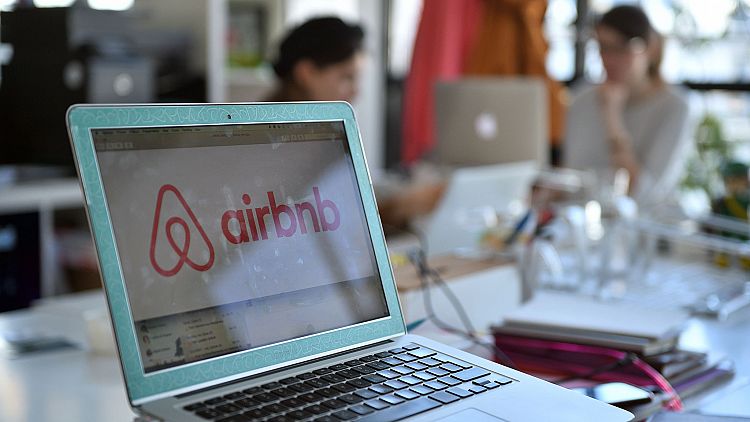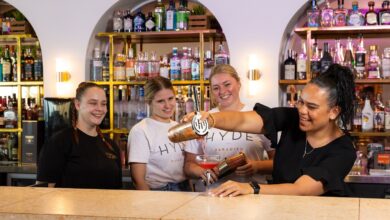
Councils struggling against the odds
Quasi-hotels should be banned under reforms to the regulation of short-term holiday letting in NSW, demands the Accommodation Association of Australia, as the NSW government considers changes to the model for regulation of tourism accommodation.
This article is a Resort News original, make sure you’re subscribed to the monthly magazine for more in-depth content!
“It is vital that the new model for regulation of tourism accommodation in NSW has two top priorities – consumer safety and local jobs,” said the association’s chief executive officer, Richard Munro.
“At the moment, in almost all cases, when domestic and international visitors stay in an Airbnb apartment or property, they are staying in non-compliant accommodation – accommodation that does not meet the same high safety standards that traditional hotels have in place.
“This cannot be allowed to continue if Australia is to maintain its reputation as a safe holiday destination.”
Such rhetoric is, at the very least, naïve as the sharing economy powers on. State and local governments are unconvincingly grappling with the sharing economy phenomenon in accommodation.
The problems are many (actual and perceived): Apartment dwellers not wanting their lives troubled by short-term interlopers, especially when they overtax amenities, create noise and generally disrupt their utopic lives. Then building owners worry over wear-and-tear on their complexes, complaining owner-occupiers and various carpark, rubbish disposal and maintenance concerns.
Even bodies corporate are thwarted in having short stay rentals banned from their complexes with by-laws being ruled invalid by the Office of Fair Trading, at least in NSW. [Section 139 (2) of the Strata Schemes Management Act 2015 states that no by-law can prohibit or restrict the devolution of a lot or a transfer, lease, mortgage or other dealing relating to a lot.]
Then there are the traditional accommodation providers that want a level playing field where all those that let lodging to visitors comply with health, safety, fire, building code and insurance regulations and cough up all appropriate taxes.
Governments, especially at a local level, are being swamped by the surge of the sharing businesses like Airbnb, HomeAway and Stayz, with a bureaucratic mess of outdated rules, regulations and licence impositions hampering any effort to create a new legislative base.
At a state level, there is the growing pressure for governments to do something to ease the rental accommodation shortage and cost with the sharing accommodation sector copping a fair bit of the blame for taking out thousands of homes/apartments that would normally be available to renters.
Sydney is always used as the example of this with an estimated 6000 homes potentially taken out of Sydney’s permanent rental housing market as landlords list properties on home-sharing websites such as Airbnb.
New data from the University of Sydney’s Urban Housing Lab suggests the home-sharing website may be worsening housing affordability. An analysis of property listings in April 2017 found about 28 percent of Airbnb listings were entire properties, while 70 percent were rooms and shared rooms.
“This equates to around 6000 homes taken out of the permanent rental market and 17,000 Sydney households using their homes, rooms or beds for extra income,” said Nicole Gurran, a professor with USUHL.
Gurran said the number of listings on Airbnb for entire homes was about five times the estimated number of rental vacancies – the proportion of vacant rental stock that was available for people to rent on a permanent basis – in the Waverley local government area in April 2017.
Airbnb listings of entire homes in Mosman, Woollahra and the City of Sydney, as well as Byron Bay and Ballina shires, also significantly outstripped rental vacancies.
But a report, published in March 2017, by the Tenants Union of NSW suggested Airbnb had yet to make an impact on the private rental market: “It is worth noting in passing that lower income renters in Sydney’s private market have mostly already been moved out of the areas where Airbnb is located.”
Airbnb’s spokesman said the home-sharing website was a small player in the housing market: “In Sydney, which has the most listings of any Australian city and double the number of listings of Melbourne, our community still only represents a tiny fraction – around one percent – of the local market.
“To put that in perspective, there are close to 10 times as many empty homes in Australia as there are Airbnb listings,” he said.
Councils – there are 547 in Australia – also see a bit of revenue in it for themselves from taxes, levies and licences. Some Queensland councils are pushing for online accommodation hosts on sites like Airbnb to pay a tax toward that region’s marketing and infrastructure costs.
Airbnb has some 19,000 listings statewide or 1.7 percent of the housing market injecting $217 million each year into Queensland’s economy. Around 343,000 guests stayed 580,000 nights.
Noosa mayor Tony Wellington, who supports a levy, says, “The upside of the online booking agency is that they’re a great addition to the local economy and I’m sure being on Airbnb or Stayz helps many a household to make ends meet.
“The downside is that we don’t necessarily know how many there are or where they are. Potentially, they should be paying their very minimal tourism levy which is $60 a year, so that they contribute towards the marketing of Noosa along with all the other visitor accommodation types,” he said.
In an effort to locate the properties, Wellington has called for legislation to force providers such as Airbnb to divulge the names and addresses of short-term accommodation hosts so they can ensure these places comply with rating and planning scheme requirements. Or, in reality, pay something to the council.
With an overwhelming majority, local government delegates voted that the Local Government Association of Queensland lobby the state government to come up with a clear policy for managing short-term accommodation at their annual conference in October. The expected response from tourism minister Kate Jones at the Gladstone conference was that she would set up a taskforce.
Jones told LGAQ delegates: “I do realise that this is an issue where different councils do have different experiences and different views. I have an industry taskforce that I established which has high leaders in the tourism industry. So today I will say that I’m going to set-up a taskforce… which will have representatives from the share economy as well as local government and the accommodation sector, so we can sit down in a constructive way and nut out some of those issues.”
Airbnb will fight any plans to force more than 19,000 Queensland home-owners to pay council-imposed tourism levies when they rent their properties out to holidaymakers.
The online booking agency has confirmed it will contest a bid to have online booking agencies hand over clients’ street addresses to local governments wanting to stop short-term accommodation providers cashing in on regional tourism promotions because they do not contribute to them.
“If they want to pursue back-to-the-future innovation-denying policies our community will fight to protect their rights,” stressed Airbnb ANZ public policy head Brent Thomas.
However, Thomas said Airbnb supported a tourism or bed tax “to support local infrastructure and communities” but only if it was levied on all accommodation providers.
Thomas has attacked the Australian hotel lobby for its push for “draconian” legislation. He criticised the industry for being unwilling to embrace changes in tourism, stating it was in Australia’s interest to get more people visiting the country, regardless of their accommodation.
“The big hotel lobby are scared of something that consumers have overwhelmingly voted with their feet about.
“This country has the highest percentage of active Airbnb users in the world but what we’ve got is a vested interested old school industry, which is denying and opposing the change consumers have already embraced,” Thomas said.
State governments are grappling with some sort of share accommodation legislation. Tasmania and South Australia have introduced regulations that address some areas and create chaos in others. NSW is trying to assemble an equitable solution with widespread consultation with WA trying to do the same.
In NSW, the Berejiklian government recently released a Short-term Holiday Letting in NSW options paper for the discussion of regulating short-term letting on a state rather than a council basis. Some of the proposed changes include having short-term letters acquire a license and pay a levy. The state government may also impose a time limit on letters and penalties for rowdy guests.
Those using Airbnb to gain a bit of extra money are facing their own problems. Airbnb hosts earn an average income of $5000 a year, according to the company.
An ATO spokesman said: “If you earn money from renting out a room or house you need to declare it because it counts as assessable income. Any money earned through accommodation sharing, where you rent out all or part of your house or even a car space, should be included in your individual tax return as rental income.”
Bear in mind, the ATO is able to data-match rental income with third party data, including the Airbnb website itself, which discloses information about hosts and their property, which the ATO can then match with their tax return.
The income may also lead to land tax, GST and a property status that could affect capital gains tax (on sale) rates and insurance covers.
Brendan Gogarty, a senior lecturer at the University of Tasmania advised a robo-debt system operated by the Tasmanian state government was collecting aggregate data from the Australian Taxation Office, bond authorities, Centrelink, the electoral roll and the public domain to find out if people were making an income from their home.
If they are, and haven’t been paying land tax [that normally does not apply to a principal home], the State Revenue Office sends them an investigation notice and a questionnaire.
“People are told they will get a penalty if they don’t fill out the questionnaire within 14 days and it’s highly incriminating,” Gogarty said and people were just paying the fines because they were scared of the idea of being a tax cheat.
In the meantime, hotel chains continue to acquire home share start-ups. Last year, Accor bought OneFineStay for $170 million and has amalgamated it with its Travel Keys and Squarebreak brands. Recently Wyndham Worldwide took over London-based Love Home Swap. Hyatt has Oasis.
Airbnb itself is in the acquisition game having bought Luxury Retreats. Airbnb has also really stepped up its business offerings, even partnering with travel agent giants Flight Centre to reach more corporates.
More worrying still is a new infant the corporate giant is involved in. Airbnb is reportedly developing a branded apartment complex in Florida. The move would be Airbnb’s first attempt to physically create Airbnb-branded accommodation, and is one of a number of trials the company is running to broaden its revenue streams as listings growth begins to slow and legislative pressure increases.
Airbnb is working with a South Florida-based real estate developer, Newgard Development Group and won’t own the properties but they will carry its brand. The building, expected to have hundreds of apartment units, is being built in Kissimmee, near Orlando, Florida.
Billionaire Airbnb co-founder Joe Gebbia has outlined plans to consolidate the international travel market insists the future of the platform is a more complete end-to-end trip experience.
“The average vacation takes upwards of 25 hours to plan and put together — from flights and rental cars, accommodations, split payments with friends — there are all these different components. I think people use about 10 different apps to coordinate an entire trip, so we ask the question: why? Couldn’t you have one place to go to put your whole trip together?”
The launch of Experiences in November last year and the idea of reducing the need for 10 travel apps to just one suggests Airbnb may be now looking at the highly lucrative booking sector of the industry and maybe OTA giants such as Expedia, TripAdvisor and Webjet should be getting worried.
Addressing tax concerns lobbed at tech almost all tech giants, including Google, the co-founder said “we love paying taxes, which is why we’ve worked with 340 cities to do that”.
Perhaps it is time for Australia to reform legislation regarding visitor accommodation into a simple, all-encompassing regulation that is fair for all providers. In reality, does it have to be multi-facetted with different rules for some and not others?
The reality is creating a level playing field for all accommodation providers is relatively simple: it is only self-interest determinations that complicate the issue.

AccomNews is not affiliated with any government agency, body or political party. We are an independently owned, family-operated magazine.








It’s difficult to see the Australian Govt finding the fortitude to do their job properly.
Why draft new laws for lawbreakers who are not complying with the existing ones ?
Our weak Govt might as well just ask AirBnB to draft it all for them and show Govt where to sign.
Why is our Govt not enforcing our existing laws ?
Backyarders want parity with legitimate compliant accommodation, then enforce existing laws and that’ll ensure they get parity.
AirBnB is wiping their feet on our Govt and making a mockery of them.